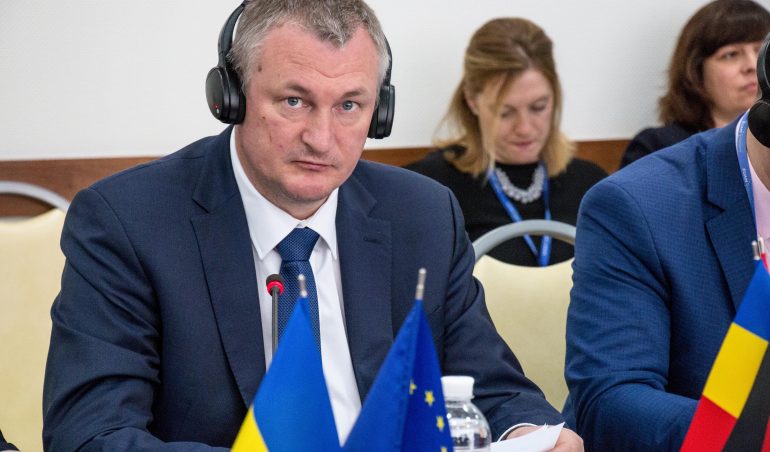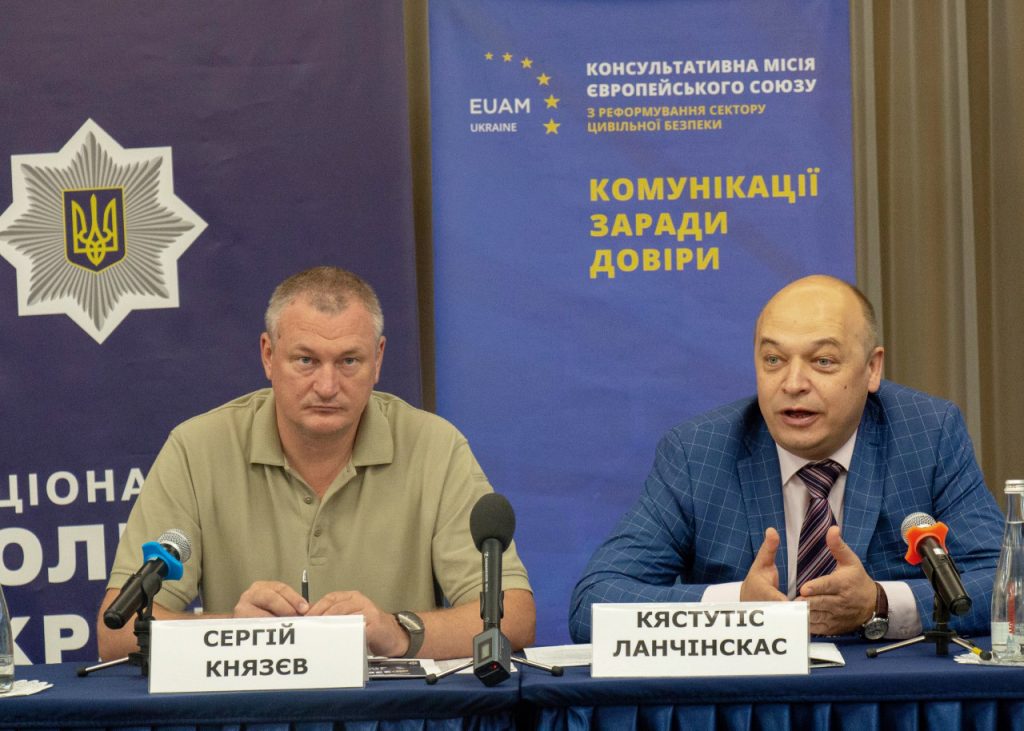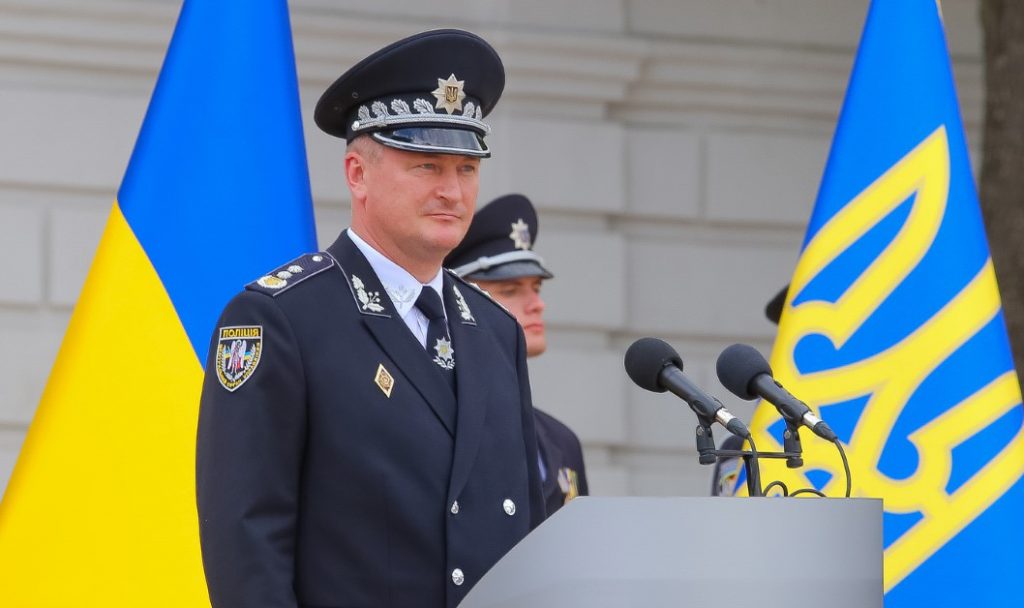“We cannot think we are ‘above’ the community,” says Chief of the National Police of Ukraine at EUAM communications training
August 16, 2018
At a recent communications training organised by the EU Advisory Mission (EUAM) Ukraine, the Chief of the National Police of Ukraine, Serhiy Knyazev, underlined the importance of communications to effective police work. In this interview, taken after he addressed the 41 police spokespersons at the training, he explains his vision of police communications and stresses the importance of building trust with the community.
In your opinion, what is the main task of a police press officer?
In my opinion, a police press officer is the face of a police department. His or her actions make the difference between action and inaction, understanding or misunderstanding between the police and the community in a region, city or even at the state level. It’s extremely important
What are the main challenges that police press officers face?
The main challenges are a result of it being necessary all 24 hours of the day to show how the police is working, and explain to citizens the content of tasks being done. It’s also important to get feedback – to listen to important messages from the community, from society, that need to be brought to the attention of the police and its top management. There has been a change. This is not only a change of our priorities, but also our approach. We are moving away from post-Soviet reports that are heavy on statistics to direct and real work connected with serving the community. By the way, this is the main task of the police in many European countries – serving the community.

On the topic of your cooperation with the EU Advisory Mission, is today’s communications training useful? What needs to be done to improve cooperation and communication in the National Police?
I would like to thank EUAM as this training has taken place only as a result of cooperation with the Mission. EUAM in turn has the opportunity to observe the changes in the work of the National Police, at least in how our communications departments operate. I think this is important for both sides – the police and EUAM.
In your opinion, is communications work in the police changing or does it still follow the Soviet model? What needs to be improved?
It is changing for sure. This is not just my opinion. Journalists in our country also think so. I have repeatedly asked journalists “What do you think of our communications?”. Naturally, there is some critical feedback. However, in general, we are moving forward at a very fast pace.
I would like to ask you about your common projects with EUAM, such as work on public order and the dialogue police. What is your opinion of their implementation?
Most of the projects started by the Mission and the National Police already have taken on their own lives. This is due to our joint efforts. For example, the dialogue police has demonstrated its value in practice. We have already hosted colleagues from other countries so they can observe how our dialogue police work in our present context and how we are adopting this important experience. This is very good. The same is true of the other projects. From our side in the National Police we continually ask EUAM to engage in new projects or assist in areas of our police work where improvements or additional attention are needed and where there are issues that need to be solved. Our meetings with EUAM leadership clearly show that the Mission is ready to support us and we always pay attention to the help that has been provided.
What is the status of the “Detectives” project and then do you think that the new standard operating procedures for public order policing will be adopted?
I will start from the second part of your question. The documents are already being discussed. The main contents have been drafted and they are being discussed by different entities. This is a mandatory procedure that leads to approval by the Ministry of Justice. I think by the end of the year, we will have them already. As for the detectives project, this is an important and necessary change in work of the National Police. This is the view that we are communicating to various law enforcement agencies and organisations, as well as institutions such as the Verkhovna Rada Committee that prepares legisliation in this area. We demonstrate that this change is necessary, we realise ourselves how necessary it is. However, unfortunately, we need to follow the people who make legislation. They are listening to us, however, I cannot say that this change will be made sometime in the foreseeable future.

Last question: how do you see the police of your dreams? How would it work?
A modern, highly qualified state institution with no material limits on resources, which can perform any task or tackle any risk faced by society. We need to improve ourselves – invest money, engage young people, come up with new ideas, implement them and listen to the community. We cannot turn away from the community, or think that we are ‘above’ it. We were told that we were ‘above’ the community during the Soviet period. This was wrong. We are a part of the community, an inseparable part of it, with – by the way – all its faults.


